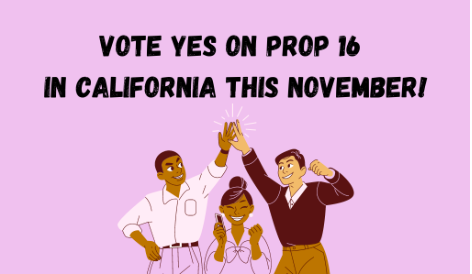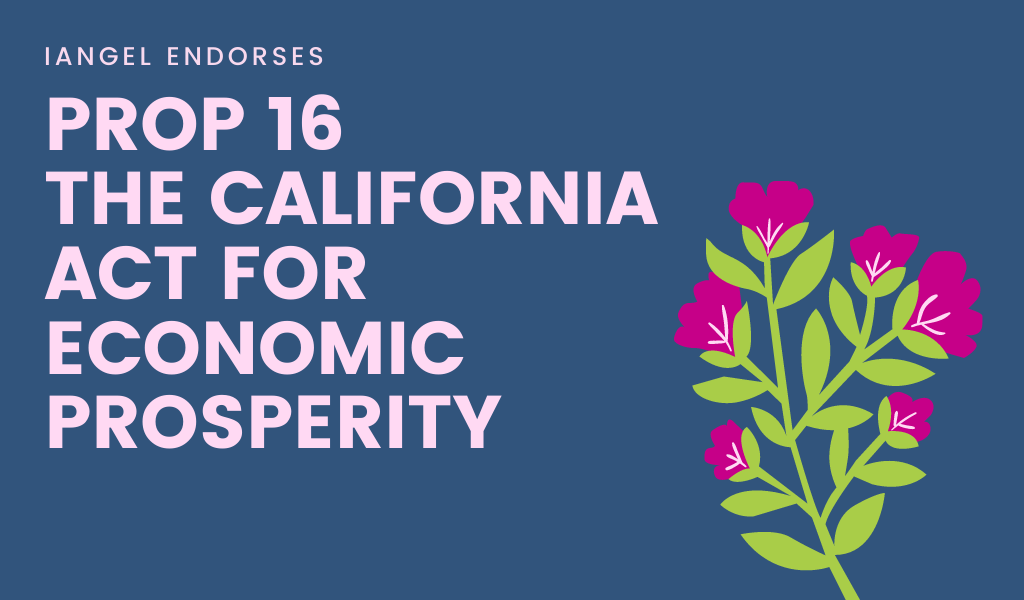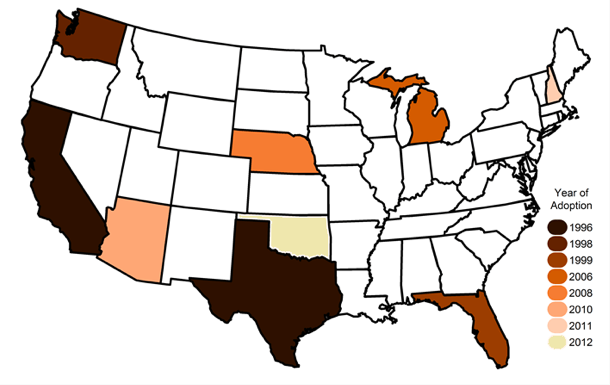
By Eman Khatri, Intern
Endorsed by: IANGEL and over 500 business, civil rights, education and labor organizations, as members of the Opportunity for All Coalition.
This pandemic has exposed deep rooted, structural inequities in our society as a whole, and in our government systems in particular. Time and time again, people of color and women have fought to make “liberty and justice for all” a reality, but have been hampered by systems, laws and policies that make it more difficult to do so. In California, affirmative action in public education, employment and contracting has been unlawful for more than 20 years pursuant to Section 31, Article 1 of the California Constitution, enacted in 1996 through Proposition 209. Proponents of the inaptly named “California Civil Rights Initiative” believed that governmental institutions should not be allowed to consider sex, gender, or race in academic admissions or in the hiring process. Opponents included those who supported affirmative action as a means to redress the disadvantages caused by systemic race and gender discrimination.
California and the United States have had a controversial history with affirmative action. Precedents were set even before Prop 209 was approved by 55% of voters. In 1978, the U.S. Supreme Court decision in Regents of the University of California v. Bakke held that racial quotas in the college admissions process were impermissible, but upheld affirmative action in general, allowing race to be considered a factor in admissions policies. As a result of Prop 209, the number of Black and Latinx students on UC campuses has dropped precipitously. These precedents mean fewer women and people of color have had opportunities to achieve substantial economic success.
Proposition 209 has caused real harm to women and people of color. In California, for every dollar men are paid, women are paid 80 cents. Women of color and single moms are paid less than 60 cents on the dollar for the same work as their white male counterparts. Further, small businesses owned by women and people of color lose $1.1 billion each year due to Proposition 209’s ban on taking gender and race into consideration in public contracting. As this pandemic worsens, so do the economic opportunities for women and communities of color. This is leading to job loss, economic turmoil, and death. Women are often the first to lose their jobs during times of economic strife, due, at least in part, to an increase in caregiving responsibilities.

IANGEL has been a strong advocate for affirmative action and Prop 16 since it first began its course through the state assembly as ACA-5. As an organization and network that supports equity for people of color and women, we recognize that the two are intertwined. We cannot have one without the other. Historically speaking, women’s rights groups have often failed to include people of color in their fight for equity. Prop 16, if passed, will help us begin to overcome both systemic gender and racial disparities. Allowing race and gender to be considered in government hiring and contracting as well as in public education will fuel the larger movement to achieve gender and racial justice.
If you are a California voter, we urge you to vote for Prop 16 this November! Register to vote and opt for a mail-in ballot to ensure your vote is counted despite any COVID-19 issues that may arise in the next few months. It is to our benefit, in every public sector, to have a more diverse workforce. California could take its name off the list of states with affirmative action bans. The precedent set by California could inspire change in other states such as Texas, Washington, Florida, Michigan, Nebraska, Arizona, New Hampshire, and Oklahoma. We can choose to make history by voting YES on Prop 16!

